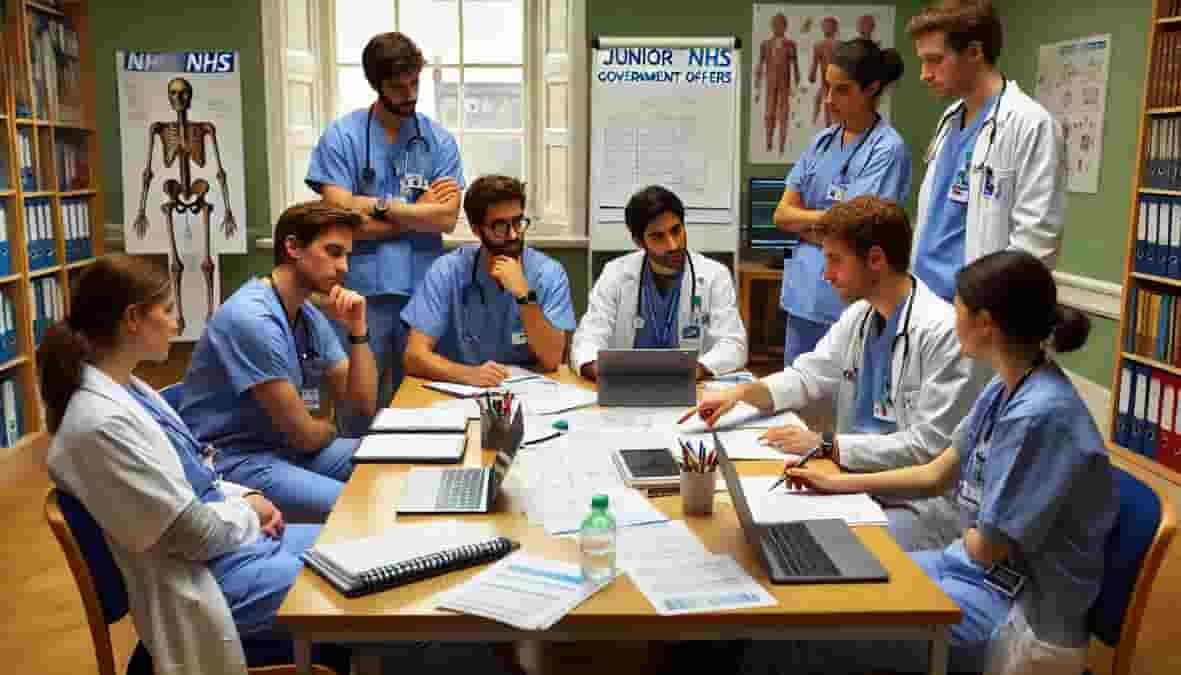The UK government has put forth a substantial offer to NHS junior doctors, proposing a 22.3% pay rise over the next two years in an effort to end the ongoing strike action that has significantly impacted the healthcare sector. This proposal comes merely three weeks after the newly elected Labour government took office, marking a decisive move to address one of the critical issues facing the nation’s healthcare system.
Details of the Proposal
The offer, which has been recommended by the British Medical Association’s (BMA) junior doctors committee, includes a backdated pay rise of 4.05% for the 2023-24 fiscal year. This is in addition to an existing increase of between 8.8% and 10.3%, making the total increase for this period particularly notable. If the junior doctors accept this proposal, they could see an overall pay increase of between 7% and 9% for the 2024-25 period, which also includes a consolidated £1,000 payment.
Mixed Reactions
The proposal has elicited a range of responses from various stakeholders. Some have lauded the government’s swift and proactive approach to resolving the strike, emphasizing the importance of supporting healthcare professionals who play a vital role in the nation’s well-being. These supporters argue that such a pay rise is long overdue and is a necessary step in retaining and motivating junior doctors.
On the other hand, there are concerns about the financial implications of the proposed pay rise. Critics question the sustainability of funding such an increase and are seeking clarity on where the additional funds will be sourced. They argue that while the pay rise is justified, the government must ensure that it does not adversely affect other areas of public spending.
Impact on Junior Doctors and Healthcare
For junior doctors, this pay rise represents a significant financial boost that acknowledges their hard work and dedication, especially during challenging times. It also addresses some of the financial strains that have contributed to the ongoing strike action. The potential resolution of the strike would likely bring much-needed stability to the healthcare sector, benefiting patients and healthcare providers alike.
Next Steps
The BMA’s junior doctors committee has recommended the offer to its members, who will now have the opportunity to vote on whether to accept the proposal. The outcome of this vote will be crucial in determining the next steps and whether the strike action will come to an end.
As the government awaits the decision of the junior doctors, the focus remains on ensuring that the healthcare system can continue to operate effectively and that the needs of both healthcare professionals and patients are met.
The Workers Union says…
“The government’s proposal for a 22.3% pay rise over two years for junior doctors is a significant step towards resolving the ongoing strike. While the offer has received mixed reactions, it underscores the importance of supporting and valuing healthcare professionals. The outcome of the junior doctors’ vote will be closely watched, as it has the potential to bring about a positive resolution to a prolonged dispute.”




